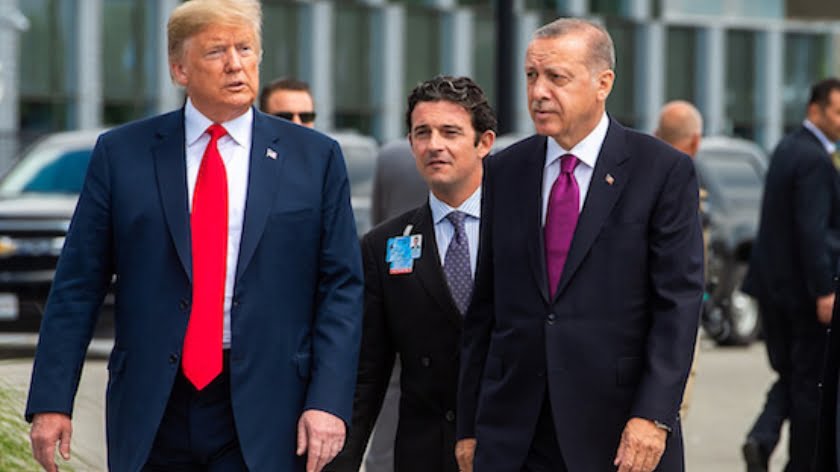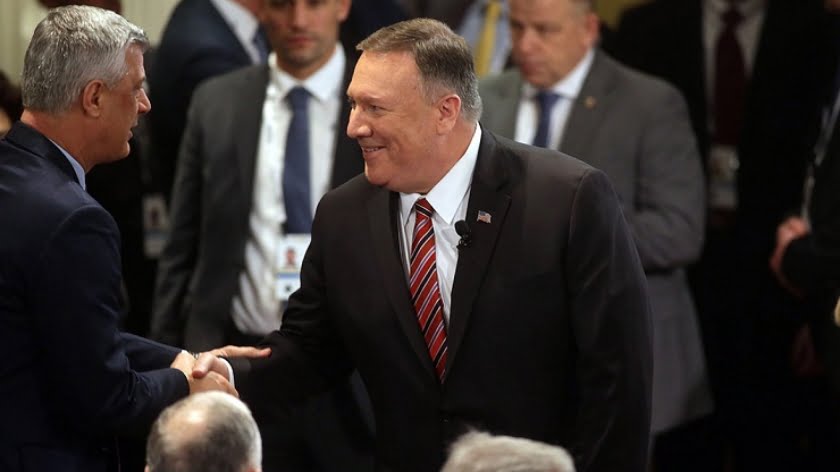The Sanctions Addicts Look for Their Next Fix
The Trump administration is preparing to wage yet another economic war. This time they intend to impose sanctions on Turkey in response to its government’s invasion of northern Syria:
After Treasury Secretary Steven Mnuchin said on Friday that Trump had authorized “very powerful” new sanctions targeting Turkey, the administration appeared ready to start making good on Trump’s threat to obliterate Turkey’s economy.
On Sunday, Trump said he was listening to Congress, where Republicans and Democrats are pushing aggressively for sanctions action.
“Dealing with @LindseyGrahamSC and many members of Congress, including Democrats, about imposing powerful Sanctions on Turkey,” Trump said on Twitter, referring to the loyal Trump ally and U.S. senator who lambasted the president last week.
Imposing sanctions on other states has become a reflexive response for U.S. politicians and policymakers, and the U.S. increasingly sanctions the economies of entire countries when we know that the punitive measures won’t affect the targeted government’s behavior for the better. Sanctions advocates want to do it anyway to prove a point or to show that they are “doing something.”
There should be consequences for the Turkish invasion, but broad economic sanctions shouldn’t be among them. The U.S. should certainly suspend arms sales to Turkey, and it should remove the nuclear weapons that our government keeps at Incirlik. Those would be appropriate responses to signal U.S. opposition to the invasion, and it would secure the nuclear weapons that should have been taken out of Turkey years ago.
Launching an economic war means resorting to collective punishment of the civilian population of Turkey. It would mainly hurt the poorest and most vulnerable people in Turkey, and it wouldn’t compel the Turkish government to halt its attack. The Turkish government isn’t going to compromise on something that it sees as being very important to its security. Sanctions will predictably inflame resentment against the U.S. and provide a convenient foil for the government.
When sanctions are imposed, they tend to become permanent. Members of Congress are quick to pull the trigger on sanctions, but they are almost never willing to lift the sanctions later on. Sanctions advocates sometimes design sanctions in such a way that they cannot be lifted short of a radical overhaul of the targeted state’s foreign policy and internal behavior, and that ensures that there is nothing the other government can do that will ever be good enough to get out from under the sanctions.
Other governments have picked up on this, so they are more likely to endure the damage from sanctions and ignore U.S. demands on the assumption that the U.S. cannot be trusted to lift sanctions. The example of how easily the U.S. reimposed sanctions on Iran despite Iranian compliance would be hard to forget.
Normally, economic sanctions on an ally would stand a better chance of changing the government’s behavior, but the Turkish government hasn’t acted the part of a reliable ally for some time and Erdogan isn’t as worried now about harming relations with the U.S. as he might have been in the past.
The U.S. has spent much of the last 20 years steadily alienating Turkey, and the Turkish government has done its fair share of damage to the relationship as well, and that means that our government’s influence and leverage with Turkey is not what it used to be. Hitting them with pointless, destructive sanctions just to prove that we can won’t fix anything, and it will ensure that the U.S.-Turkish relationship sinks to new lows. The sanctions addicts are just interested in getting their next fix regardless of the consequences.
By Daniel Larison
Source: The American Conservative







